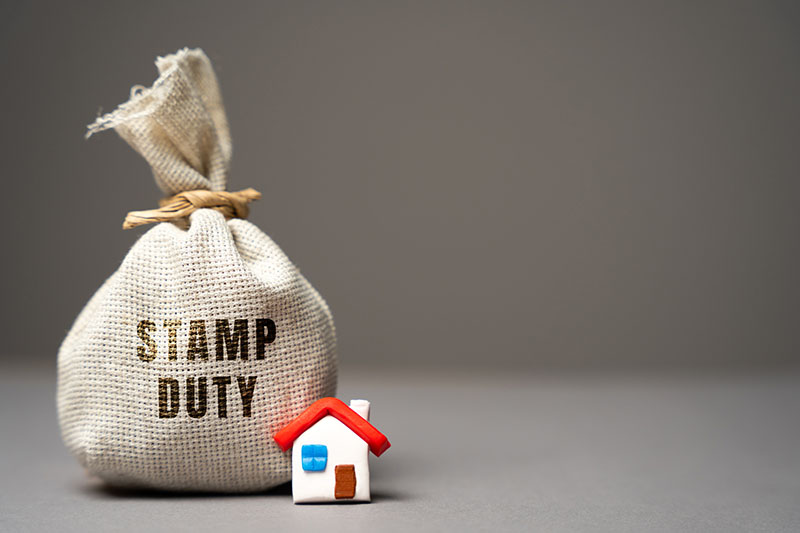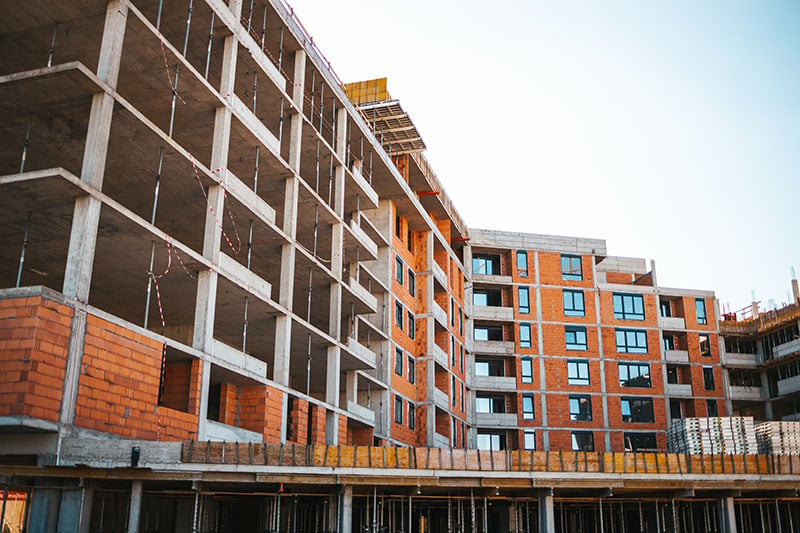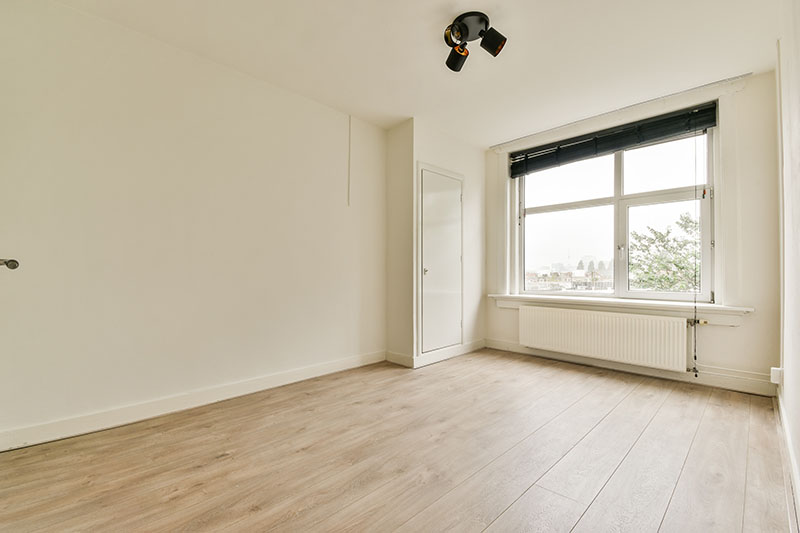5 min read
Budgeting for stamp duty in Victoria: What purchasers need to know
 Lindel Enticott
Updated on November 28, 2025
Lindel Enticott
Updated on November 28, 2025

Buying a home is very exciting! We will be here to get you Prepared before you commit, then support you right through to settlement.
The best way to be Prepared is to ensure you’ve budgeted for all expenses.
One of the biggest costs most purchasers need to budget for is stamp duty, also known as land transfer duty.
What is Stamp Duty?
Stamp duty is a Victorian government tax payable on the transfer of real property (real estate) in Victoria.
The amount is calculated on the dutiable value of your property, which is the higher of the purchase price or its market value.
In most cases, this will simply be the amount listed in your contract of sale. But if you’re buying at a discount (e.g. from a family member or associate), the State Revenue Office (SRO) may require a valuation from a qualified valuer. Prepared can assist you in navigating your valuation requirements if necessary.
When do you pay stamp duty?
Stamp duty is payable at settlement.
In electronic settlements (via PEXA) the duty is paid as part of the digital settlement process.
For paper settlements (which is now very rare in Victoria due to the mandate on e-conveyancing), payment must be made within 30 days of settlement — failure to do so will incur interest and penalties.
You will need to ensure you have the funds available to pay stamp duty at settlement to avoid delays.

How is duty calculated?
Stamp duty is not a flat rate. Instead, it increases on a sliding scale depending on the property’s dutiable value and whether it's a principal place of residence (PPR) or investment.
The table below summarises the 2025 duty rates*:
|
Dutiable Value |
Duty Payable |
|
$0 – $25,000 |
1.4% |
|
$25,001 – $130,000 |
$350 + 2.4% of amount over $25,000 |
|
$130,001 – $960,000 |
$2,870 + 6% of amount over $130,000 |
|
$960,001 – $2,000,000 |
5.5% of dutiable value |
|
Over $2,000,000 |
$110,000 + 6.5% of amount over $2,000,000 |
The duty payable can then be varied by concession (reducing amount payable) or surcharge (increasing the amount payable).
*These rates are for non-principal place of residence purchases – extracted from SRO and accurate as of 22 July 2025. You should use these rates as a guide only and refer to the State Revenue Office website for validation when budgeting.
Foreign purchasers and the additional duty surcharge
Individuals, companies and trusts can all be considered foreign purchasers.
If you're a foreign purchaser, you may have to pay an additional 8% surcharge on top of standard stamp duty. Exemptions may apply if you’re purchasing jointly with a spouse who is a citizen or permanent resident, and you occupy the property as your home for at least 12 months.
Always confirm your foreign status with your conveyancer and consider whether FIRB approval is required before you buy. Please review the SRO website for foreign purchasers of property.
What concessions are available to reduce the amount payable?
Victoria offers several concessions to reduce stamp duty that can significantly lower (or even eliminate) the duty you pay.
Your solicitor or conveyancer will complete the concession requests on your behalf in the SRO Duties Online system as part of your settlement and you will be provided with a Transferee statement to review and sign.
Below we summarise the common concessions, but you can view the full range on the State Revenue Office of Victoria website.
Principal place of residence (PPR) concession is available to owner occupiers purchasing a home to live in.
The concession reduces the amount of duty payable (but is not a full exemption of duty) and only applies for properties valued up to $550,000.
Applicants must meet the PPR residency requirement, meaning they must:
- Move in within 12 months of settlement; AND
- Live there for a continuous 12-month period.
This residency requirement is a fundamental element that also applies to the other concessions explained below. If you are purchasing an investment property and do not intend to occupy the home, full duty will be payable.
See Principal place of residence (PPR) concession | State Revenue Office for full eligibility.

First home buyer (FHB) concession is available to eligible first home owners purchasing a home to live in.
Like the PPR concession above, the applicants must meet the PPR residency requirements (move in within 12 months + 12m continuous occupancy).
Unlike the PPR concession, this is one-time-concession only and certain property values will allow first home buyers to benefit from a full exemption of duty:
-
Up to $600,000: Full exemption
-
$600,001–$750,000: Concessional rates apply and some duty will be payable.
Unlike the PPR concession above, this concession has additional criteria:
- Applicants must be at least 18 years old (exceptions are possible)
- At least one applicant must be an Australian citizen/permanent resident or eligible NZ Citizen ordinarily residing in Australia (for at least 6 continuous months in the period starting 12m prior to settlement and ending 12m after settlement).
- Applicants (and their spouses) must never have obtained the First Home Owner Grant or owned property in Australia before. However, some exceptions may apply for previous investment homes that weren't owner occupied.
Please review the SRO: First Home Owners Grant information
Pensioner duty concession is available to eligible pension concession card holders purchasing a home to live in.
Like the PPR concession above, the applicants must meet the PPR residency requirements (move in within 12 months + 12m continuous occupancy).
Also, aligned with the FHB concession above, this is a one-time-concession, and certain property values will allow pensioners to benefit from full exemption of duty:
-
Up to $330,000: Full exemption available
-
$330,001–$750,000: Concessional rates apply, where some duty will be payable
It is possible for an applicant to be both an eligible pensioner and first home owner and you should consider your expected circumstances for the future when deciding on the concession to claim.
Applicants must hold a valid pensioner concession card and must not have claimed the concession previously.
Off-the-Plan concession may be available to purchasers of off-the-plan properties, where the purchaser and deal qualifies for the FHB or PPR concession.
If applicable, the concession allows stamp duty to be based on land value only (construction costs after contract date are excluded).
Purchasers must review the PPR and FHB concessions summarised above and meet all the necessary criteria of one of those concessions.
See: Off-the-plan duty concession | State Revenue Office for full eligibility.
- Applicants should take caution when budgeting (if the purchase price is above the relevant thresholds), as eligibility can be uncertain until close to settlement when construction is finalised
- Purchasers who hope for the dutiable value to be brought below the thresholds by expected construction costs, may be disappointed at settlement if the final dutiable value exceeds the range and concession cannot be applied

Temporary Boost: Between 21 October 2024 and 21 October 2025, a temporary off-the-plan concession applies for strata subdivisions.
Frequently asked questions on stamp duty:
How much duty do I need to pay?
The duty you need to pay will depend on the value of the property and whether any surcharge or concessions apply.
Use the calculator at sro.vic.gov.au to estimate your duty and budget accordingly.
Talk to your solicitor or conveyancer for guidance on concessions and plan your finances before you buy.
What happens if I move out early after claiming a concession?
You must notify the SRO within 30 days and may need to pay the full duty amount plus interest.
Can I claim the FHB concession if I owned an investment property before?
A: Possibly. Depending on when you purchased the investment property and how it was used (purely investment v owner occupied 6m+) you might still be eligible. See: First Home Owner | State Revenue Office
I’m a first home buyer but my partner isn’t – can I still claim?
A: No, if your partner has already owned a home, it is likely you will be ineligible — even if they’re not going on the title. However, this may depend on when they purchased and whether they occupied the property. See: First Home Owner | State Revenue Office
Disclaimer: The information is relevant to Victoria only and each State and Territory of Australia have different duty applications and requirements.
The information is general information only and it does not constitute legal advice.
You should speak to a tax advisor and solicitor when planning to purchase to seek personal financial and legal advice. The State Revenue Office of Victoria have calculators and eligibility information available to you as linked in this article.
The information is general in nature and does not constitute legal advice. If you are buying or selling, please contact us to request legal advice.

Understanding the statement of adjustments: What Victorian purchasers and vendors need to know before settlement
When buying or selling a property in Victoria, one conveyancing process that plays a crucial role in ensuring fairness and accuracy at settlement...
.jpg)

